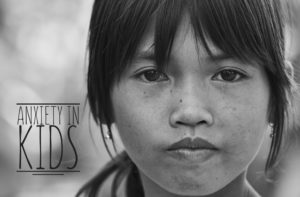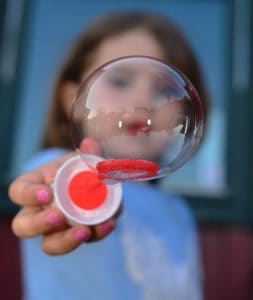With the holiday season in full swing, and the ballot of the 12 days of Christmas barreling in the background, it’s so easy to get caught up in the crazy Christmas chaos that can take over our lives. As wonderful a time of the year as Christmas is, it can also equate to a whole lot of stress.
Now for youth with a background of complex trauma, this gets even trickier and here’s why: Christmas might be packed with painful triggers that illuminate their stress response (https://www.complextrauma.ca/the-ctr-therapeutic-bookends-part-1-decreasing-stress/), routines are off kilter, expectations to be ‘good’ exceed their capacity to be well-behaved in alternative settings, Christmas can be associated with a significant amount of loss and grief (of what they don’t have, might want, of ‘family’ (just to name a few), and it most certainly can be overstimulating (routine is varied, overcrowded malls, special sugary treats).
This is a time to create memories and to preserve moments. As we approach this Christmas season, we’ve gathered ‘The 12 Days of Christmas Calm’ to help you do just this.

1. Just say No.
Sometimes less is more as it means more peaceful days versus sabotaged moments that steal your joy. This might mean learning to say No to things that are just too overwhelming for your kiddos (think: anything that has exceeding expectations for this stage/age of your child/youth and could range from choosing to stay home on Christmas day rather than driving to and from the different relative’s homes or events that are well meaning but create way more work and/or stress for you and your child). Instead choose this: relax, take slower days, stay home, play in the snow, stay in PJ’s, and just be.
2. Routine is critical.
Kids with complex trauma thrive on predictability and with all the changes in and over Christmas holidays, this can be fairly disruptive for their systems. When this happens, this often equates to anxiety and then their over-reactive stress response takes over (this looks like meltdown’s, fits, withdrawals, etc). Anxiety has a tendency to heighten the amygdala’s response to stress and as a result, the brain releases cortisol – the stress hormone. When life becomes unpredictable, kids with trauma tend to go into high alert mode – and with an increased release of cortisol – this signals stress and danger. Keeping this at bay can happen with a predictable and structured schedule (tips: inform your child of any potential changes to the day with as much advance notice & incorporate a visual calendar to assist with predictability). Predictability aids in decreasing stress and anxiety which will help enhance a more peaceful Christmas abode.

3. Recognize anxiety.
Understanding your child’s anxiety, their trigger points and what accentuates this is critical to disarming the ‘anxiety giant’. Limit surprises and sensory overload (this can wreak havoc on their stress response) Learning to implement strategies to help them regulate big emotions is very helpful. Techniques such as breathing (deep breathing), incorporating mindfulness, and grounding techniques. See here for more: https://www.complextrauma.ca/anxiety-complex-trauma/
4. Lower your expectations and plan ahead.
I think it’s important to anticipate and plan for potential melt-down’s. When this happens, what will you do? It is not uncommon for special events to be sabotaged by big emotions. At this point, remember to be flexible and it’s always okay to leave. Obligatory commitments that are overwhelming for your kids? Don’t put pressure on yourselves to stick it out – know your escape plan and exercise it. Another alternative it to bring their cozy tent or ensure a quiet spot/retreat so they can have an ‘out’ in a safe but familiar space in the home of another.

5. Calming kits are cool.
Comfort is a critical component for kids to feel safe. When they feel safe, their stress response is lowered. When their stress response is lowered, they get closer to their baseline and all of this equates to more peaceful moments. Calming kits are a great tool: scented playdough, stress balls, essential oils, some relaxation prompt cards (check this site out: https://copingskillsforkids.com/ or make your own), a special stuffy or blanket, noise cancelling headphones and a playlist for back up (inclusive of kids meditations), coloring, bubbles (a fun distraction and a great tool to regulate breathing).
6. Slow it down.
Christmas day is full of stimulation – anticipate this and think through ways to invite a slower pace. Excitement is inevitable but there are ways to safeguard this: consider taking time to open presents slowly rather than rushing through them, take breaks as needed and utilize strategies to help ‘exert’ energy – invite a Christmas dance break, some Silly Santa yoga moves, or some trampoline jumping/or large muscle movement to release the adrenaline build up in the body.

7. Practice Emotional Literacy.
Develop and practice feelings. This will help your child learn to understand what they are feeling. Knowing how we are feeling helps us navigate what to do with those feelings (there are great apps out there as well as visual aids to put on your fridge, books to read highlighting emotions, & Emotion centered games to play together). Christmas is full of excitement and nerves – helping kids to differentiate this can help. S. Kostelyk shares a key tip with kids, “When we are excited, our stomachs can get butterflies, our heart rate can speed up, we can feel jittery and these are the same things our bodies feel when we are nervous. Teach them to take a moment when they recognize those signs and ask themselves “Am I excited or am I nervous?”. Doing this easy exercise can make a big difference. You may also want to tell them that it is normal to feel both excited and nervous at the same time” (from The Chaos and the Clutter).
8. Understand the need behind the emotion.
I like to think that all behavior is signaling a need. As a parent/caregiver, this takes some sleuth skills and some intentional thought process to navigate. So, anticipate that over the holidays and out of routine, their might be bigger feelings coming forth – but there is a reason for this. It can be especially hard for parents and caregivers when all their efforts to create a special moment turn sour. Take time for yourself to breathe deep, remember what counts and then, draw them close, assure them they are loved, and help them co-regulate by modeling calm behavior.

9. Nutrition is key.
Sugar, even though it tastes good, can wreak havoc with kids – high high’s and low low’s which aren’t so fun for caregivers to manage. Christmas should be filled with special treats and yummy food without all the stress and strain. Nutritious and balanced snacks consistently make a huge difference in managing challenging behavior: (https://www.healthylittlefoodies.com/18-healthy-christmas-snacks/)
10. Give them choices.
Include them in the planning process and help them buy into the celebrations. This not only helps them plan and prepare but it gives them a measure of control. Help them understand that there may be some non-negotiable activities or requirements but where they can have choice, give them this space.
11. Prepare them.
There are sometimes unspoken family gratuities and manners that are expected (from you and others). Practice with your child before Christmas day and teach them what to say, and what NOT to say. You could role play or make this into a fun activity – the kids could wrap up items in the house and then draw different responses from a hat (prior to Christmas day) with what to say (be sure to include what not to say to generate the giggles).

12. Connection.
Be sure to hone into what is most important – you and the relationship you have with your child. Don’t let anything sabotage this.
Please Note: Nicole works part-time as a Complex Care and Intervention coach for Complex Trauma Resources and these have been re-printed by permission from Complex Trauma Resources Ltd. ©
With the holiday season in full swing, and the ballot of the 12 days of Christmas barreling in the background, it’s so easy to get caught up in the crazy Christmas chaos that can take over our lives. As wonderful a time of the year as Christmas is, it can also equate to a whole lot of stress.
Now for youth with a background of complex trauma, this gets even trickier and here’s why: Christmas might be packed with painful triggers that illuminate their stress response (https://www.complextrauma.ca/the-ctr-therapeutic-bookends-part-1-decreasing-stress/), routines are off kilter, expectations to be ‘good’ exceed their capacity to be well-behaved in alternative settings, Christmas can be associated with a significant amount of loss and grief (of what they don’t have, might want, of ‘family’ (just to name a few), and it most certainly can be overstimulating (routine is varied, overcrowded malls, special sugary treats).
This is a time to create memories and to preserve moments. As we approach this Christmas season, we’ve gathered ‘The 12 Days of Christmas Calm’ to help you do just this.

1. Just say No.
Sometimes less is more as it means more peaceful days versus sabotaged moments that steal your joy. This might mean learning to say No to things that are just too overwhelming for your kiddos (think: anything that has exceeding expectations for this stage/age of your child/youth and could range from choosing to stay home on Christmas day rather than driving to and from the different relative’s homes or events that are well meaning but create way more work and/or stress for you and your child). Instead choose this: relax, take slower days, stay home, play in the snow, stay in PJ’s, and just be.
2. Routine is critical.
Kids with complex trauma thrive on predictability and with all the changes in and over Christmas holidays, this can be fairly disruptive for their systems. When this happens, this often equates to anxiety and then their over-reactive stress response takes over (this looks like meltdown’s, fits, withdrawals, etc). Anxiety has a tendency to heighten the amygdala’s response to stress and as a result, the brain releases cortisol – the stress hormone. When life becomes unpredictable, kids with trauma tend to go into high alert mode – and with an increased release of cortisol – this signals stress and danger. Keeping this at bay can happen with a predictable and structured schedule (tips: inform your child of any potential changes to the day with as much advance notice & incorporate a visual calendar to assist with predictability). Predictability aids in decreasing stress and anxiety which will help enhance a more peaceful Christmas abode.

3. Recognize anxiety.
Understanding your child’s anxiety, their trigger points and what accentuates this is critical to disarming the ‘anxiety giant’. Limit surprises and sensory overload (this can wreak havoc on their stress response) Learning to implement strategies to help them regulate big emotions is very helpful. Techniques such as breathing (deep breathing), incorporating mindfulness, and grounding techniques. See here for more: https://www.complextrauma.ca/anxiety-complex-trauma/
4. Lower your expectations and plan ahead.
I think it’s important to anticipate and plan for potential melt-down’s. When this happens, what will you do? It is not uncommon for special events to be sabotaged by big emotions. At this point, remember to be flexible and it’s always okay to leave. Obligatory commitments that are overwhelming for your kids? Don’t put pressure on yourselves to stick it out – know your escape plan and exercise it. Another alternative it to bring their cozy tent or ensure a quiet spot/retreat so they can have an ‘out’ in a safe but familiar space in the home of another.

5. Calming kits are cool.
Comfort is a critical component for kids to feel safe. When they feel safe, their stress response is lowered. When their stress response is lowered, they get closer to their baseline and all of this equates to more peaceful moments. Calming kits are a great tool: scented playdough, stress balls, essential oils, some relaxation prompt cards (check this site out: https://copingskillsforkids.com/ or make your own), a special stuffy or blanket, noise cancelling headphones and a playlist for back up (inclusive of kids meditations), coloring, bubbles (a fun distraction and a great tool to regulate breathing).
6. Slow it down.
Christmas day is full of stimulation – anticipate this and think through ways to invite a slower pace. Excitement is inevitable but there are ways to safeguard this: consider taking time to open presents slowly rather than rushing through them, take breaks as needed and utilize strategies to help ‘exert’ energy – invite a Christmas dance break, some Silly Santa yoga moves, or some trampoline jumping/or large muscle movement to release the adrenaline build up in the body.

7. Practice Emotional Literacy.
Develop and practice feelings. This will help your child learn to understand what they are feeling. Knowing how we are feeling helps us navigate what to do with those feelings (there are great apps out there as well as visual aids to put on your fridge, books to read highlighting emotions, & Emotion centered games to play together). Christmas is full of excitement and nerves – helping kids to differentiate this can help. S. Kostelyk shares a key tip with kids, “When we are excited, our stomachs can get butterflies, our heart rate can speed up, we can feel jittery and these are the same things our bodies feel when we are nervous. Teach them to take a moment when they recognize those signs and ask themselves “Am I excited or am I nervous?”. Doing this easy exercise can make a big difference. You may also want to tell them that it is normal to feel both excited and nervous at the same time” (from The Chaos and the Clutter).
8. Understand the need behind the emotion.
I like to think that all behavior is signaling a need. As a parent/caregiver, this takes some sleuth skills and some intentional thought process to navigate. So, anticipate that over the holidays and out of routine, their might be bigger feelings coming forth – but there is a reason for this. It can be especially hard for parents and caregivers when all their efforts to create a special moment turn sour. Take time for yourself to breathe deep, remember what counts and then, draw them close, assure them they are loved, and help them co-regulate by modeling calm behavior.

9. Nutrition is key.
Sugar, even though it tastes good, can wreak havoc with kids – high high’s and low low’s which aren’t so fun for caregivers to manage. Christmas should be filled with special treats and yummy food without all the stress and strain. Nutritious and balanced snacks consistently make a huge difference in managing challenging behavior: (https://www.healthylittlefoodies.com/18-healthy-christmas-snacks/)
10. Give them choices.
Include them in the planning process and help them buy into the celebrations. This not only helps them plan and prepare but it gives them a measure of control. Help them understand that there may be some non-negotiable activities or requirements but where they can have choice, give them this space.
11. Prepare them.
There are sometimes unspoken family gratuities and manners that are expected (from you and others). Practice with your child before Christmas day and teach them what to say, and what NOT to say. You could role play or make this into a fun activity – the kids could wrap up items in the house and then draw different responses from a hat (prior to Christmas day) with what to say (be sure to include what not to say to generate the giggles).

12. Connection.
Be sure to hone into what is most important – you and the relationship you have with your child. Don’t let anything sabotage this.
Please Note: Nicole works part-time as a Complex Care and Intervention coach for Complex Trauma Resources and these have been re-printed by permission from Complex Trauma Resources Ltd. ©









